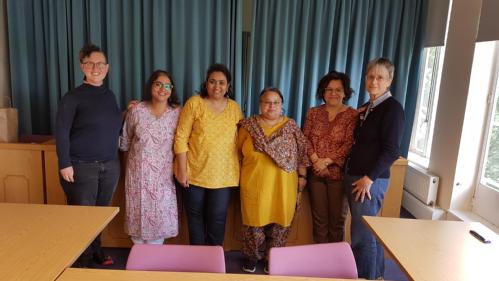News
Seminar - ‘A study to advance gender equality in Higher Education in India’
On 25th May 2023, Prof Stewart and Dr Henderson from the WAHEI team chaired a seminar co-hosted between the Law School and Department of Education Studies at Warwick. The seminar discussed the findings from this gender equality study, and the research teams also met for discussions of their respective work.
Presentations were given by the Brunel and Pune project team which consisted of:-
- Professor Maria Tsouroufli, Department of Education, Brunel University London
- Dr Anagha Tambe, Women’s Studies Department, Savitribai Phule Pune University, India
- Dr Sheha Gole, Women’s Studies Department, Savitribai Phule Pune University, India
- Dr Swati Dyahadroy, Women’s Studies Department, Savitribai Phule Pune University, India
Indian higher education, as in other emergent post-colonial contexts, has witnessed an increasing trend of female participation due to various interventions. However, attainment of gender equality at different levels of access, retention, employability, curriculum and social inclusion remains elusive, more so with widening inequalities in context of internationalization, public/private provision, and digitalization of Higher Education. The National Education Policy (NEP) 2020 is a significant step in this direction and realisation of India’s commitment to international development agenda such as the Sustainable Development Goals.
This study conducted jointly by Brunel University London and Savitribai Phule Pune University in Maharashtra, India, analysed the working of NEP 2020, with reference to the achievements of the UK higher education, focusing on access, campus climate, retention, and inclusion of gender in curricular and institutional practices in India. It was conducted in five states in India selected on the basis of socio-economic diversity of the regions, their gross enrolment ratio and gender parity index and has achieved an in-depth investigation of the multiple marginalities, which exist in the socially differentiated Indian context and impact achievement of gender equality goals.
The intersectional, institutional and regional analysis of qualitative and quantitative data complicated the narrative/myth of gender parity as equality and unravelled the intertwined relationship of gender institutional regimes, caste patriarchal norms and neo-liberal logic alongside the recent diversification of India higher education.

